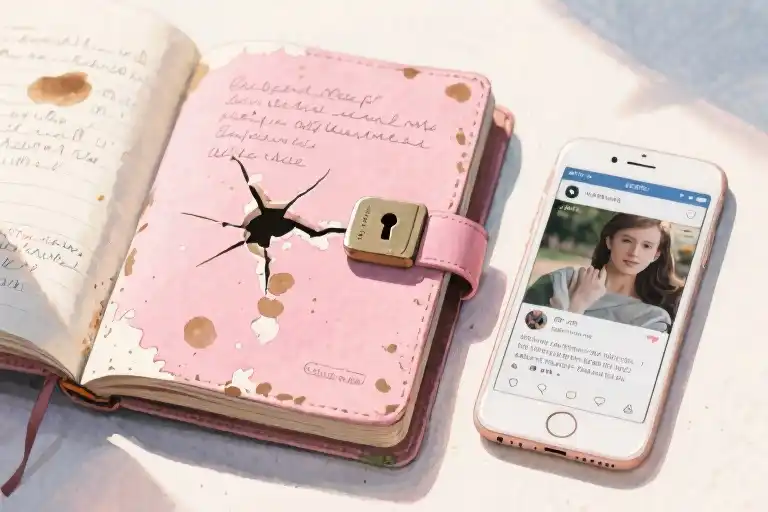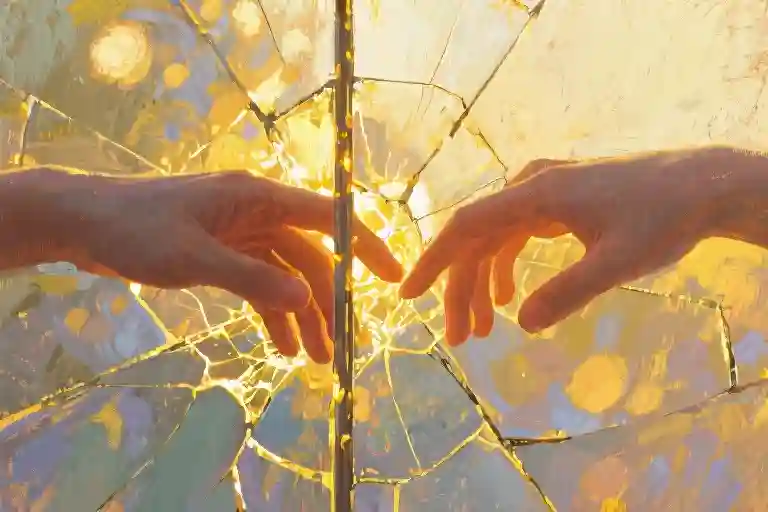The notification pops up — another diamond ring sparkling on your feed. Then comes the baby bump reveal, the #couplegoals vacation reel, the tenth wedding invitation this year. Your thumb keeps scrolling, but your chest tightens. That familiar mix of dread and desperation creeps in. When will it be my turn?
You’ve tried all the things — optimized your dating profile, said yes to every setup, even attempted those “manifest your soulmate” exercises. Yet here you are, staring at another Saturday night with your couch and a growing belief that you’re failing at adulting.
Here’s what no one tells you: You’re not actually afraid of being single forever. You’re terrified of what that idea says about you.
That panic isn’t about relationships — it’s about the stories we absorb from swipe-happy algorithms and well-meaning aunts. Social media turned romance into a spectator sport where everyone seems to be winning except you. The truth? You’re not behind. You’re not broken. And you’re definitely not asking the right questions.
I know this spiral intimately. For years, every engagement announcement felt like a personal indictment. Every “When are you settling down?” chipped away at my self-worth. Then I realized something radical: My dating anxiety wasn’t about finding love — it was about the shame industry profiting from my fear of being alone.
Let’s pause that autoplay of disaster scenarios (“Die alone with 17 cats”) and examine what’s really happening. That pit in your stomach when you see #bridetobe? It’s not envy — it’s your brain reacting to manufactured scarcity. Those dating app marathons that leave you empty? They’re symptoms, not solutions.
The fix isn’t another life hack. It’s stepping off the relationship escalator long enough to ask: Why does being single feel like emergency mode? We’ll unpack that together — without judgment, without toxic positivity, just real talk from someone who’s navigated this storm. (Spoiler: There’s solid ground ahead.)
That Instagram Panic Spiral
You know that feeling. You’re scrolling through Instagram on a perfectly ordinary Tuesday night when suddenly—boom—there it is. Another diamond ring photo. Another #bridetobe caption. Another ultrasound picture cradled by someone who isn’t you. Your thumb freezes mid-swipe as your stomach drops like you’ve missed the last step on a staircase.
This isn’t just FOMO—it’s a full-body reaction. Your pulse quickens. Your palms get clammy. That voice in your head starts its familiar chant: “Why not me? When will it be my turn? Am I falling behind?” Welcome to what I call the Instagram Panic Spiral, where algorithmic content meets dating anxiety to create the perfect emotional storm.
How Social Media Hijacks Your Perception
Let’s break down what’s really happening when you have these reactions:
- The Comparison Trap: Platforms are designed to showcase highlight reels, not real life. That “perfect couple” photo took 27 attempts and happened right after a 3-day silent treatment.
- Algorithmic Amplification: Every time you pause on wedding content, Instagram notes your interest (read: panic) and serves you more. One study found dating-related posts increase by 300% after interacting with just one engagement announcement.
- Distorted Timelines: Seeing 25-year-olds with kids while you’re 30 and single creates false urgency. In reality, the average age for marriage keeps rising (now 32 for women in the US).
A Reader’s Story: “I Deleted the App After This”
“When my college roommate posted her third pregnancy announcement, I had what I can only describe as an out-of-body experience,” shares Jessica, 29. “I found myself sobbing on my bathroom floor at 2am, then downloading three dating apps simultaneously. The next morning, I felt sick with shame—not about being single, but about my reaction.”
Jessica’s experience mirrors what psychologists call social media-induced dating anxiety—that acute stress response triggered by curated relationship content. The cruel irony? The more we consume this content, the more inadequate we feel. The more inadequate we feel, the more desperately we seek validation through relationships. And the cycle continues.
The Hidden Cost of “Just Looking”
Here’s what no one tells you about passive scrolling:
- Emotional Contagion: Research shows emotions spread through social networks like viruses. Your brain processes others’ joy as your personal lack.
- Decision Fatigue: Constant exposure to alternatives makes you second-guess your own path (“Maybe I should try speed dating again…”)
- Opportunity Cost: Hours spent analyzing exes’ new partners could be spent building genuine connections offline.
Your Mind on Algorithms: A Reality Check
Before you fall deeper into the spiral, try this:
- Audit Your Feed: For one week, note every post triggering dating anxiety. You’ll likely spot patterns (Friday night proposal posts? #MCM couple photos?)
- Fact-Check Fantasies: When a post makes your chest tighten, ask:
- What don’t I see in this picture?
- Would posting this make my relationship better?
- Interrupt the Cycle: When panic hits, physically put down your phone and say aloud: “This is a highlight, not a benchmark.”
Remember: These reactions don’t mean you’re failing at love—they mean you’re human. In our next section, we’ll examine why the fear of “forever single” feels so visceral (hint: it’s not about relationships at all). But first, take a deep breath and know this: You’re not alone in this spiral. I’ve been there. And more importantly—you can step out of it.
(Coming Next: “The Forever-Single Fantasy”—why your brain catastrophizes solitude)
The Forever-Single Fantasy: Why Your Brain Loves Catastrophizing
Your brain has this fascinating (and frankly exhausting) ability to project you decades into the future the moment you see another engagement announcement. Suddenly you’re not just scrolling past a diamond ring photo—you’re mentally drafting your future obituary as “the lonely cat lady who died surrounded by 37 unopened Hinge notifications.”
The Disaster Movie Playing in Your Head
Let’s dissect that mental screenplay frame by frame:
- The Time Warp Effect: Your anxiety compresses 50 years into a single terrifying montage where every birthday candle represents another failed relationship. In reality? Most people cycle through multiple relationship phases across their lifetime. The average American has 7-8 serious relationships before settling down (if they choose to at all).
- The Casting Problem: Your imagined future always stars Present-Day You—same insecurities, same dating skills, same emotional bandwidth. But the you at 45 or 55 will have decades more wisdom, resources, and self-knowledge. Growth isn’t just possible; it’s inevitable.
- The Missing Subplots: These doomsday scenarios conveniently edit out friendships, career wins, personal projects, and all the other relationships that give life meaning. It’s like predicting your nutritional health based solely on whether you eat pizza—ignoring every other food group.
Reality-Check Experiment
Grab your phone and try this right now:
- Open your notes app and describe your “worst-case scenario” single future in vivid detail (e.g., “I’m 60, eating microwave dinners alone while my married friends vacation together”).
- Now interrogate that story:
- What specific decisions would lead there? (Spoiler: None—life isn’t linear)
- Where are the friends you’ll make in your 40s? The hobbies you’ll discover at 50?
- How does this account for societal shifts (more singles = better support systems)?
- Finally, write an alternative version where you’re contentedly single at that age. Include:
- Community connections
- Financial security you’ve built
- Freedom to pursue passions
This isn’t toxic positivity—it’s cognitive balance. Your anxiety gets a voice, but not a monopoly.
The Evolutionary Hangover
Our brains catastrophize because:
- Survival Bias: For our ancestors, assuming “that rustling bush = tiger” was safer than “probably just wind.” Modern dating anxiety is that same alert system misfiring.
- Social Safety: Historically, being partnered meant physical/economic security. But today? You can Venmo your rent and install a security system solo.
- Availability Heuristic: We judge probabilities by what comes to mind easiest. Seeing 10 wedding posts makes marriage seem universal, when 31% of U.S. adults are single.
Your New Mental Playbook
When the doomsday reel starts:
- Label It: “Ah, my prehistoric brain is doing its ‘we’ll die alone’ routine.”
- Ask: “Is this helpful forecasting or just emotional graffiti?”
- Redirect: “I don’t know future me, but present me is going to [concrete action: call a friend, work on a passion project, etc.].”
The irony? The people thriving long-term in relationships are often those who first made peace with being single. They chose partners from abundance, not desperation. Your current anxiety isn’t a prophecy—it’s just noise. Loud, obnoxious noise, but still just noise.
Flip the Question
The Wrong Question We’ve Been Asking
For years, you’ve been stuck on one burning question: “Will I be single forever?” It plays on loop every time you see another engagement post, every family gathering where Aunt Linda asks about your dating life, every night you swipe through dating apps with dwindling hope. But here’s the hard truth — you’re asking the wrong question entirely.
The real issue isn’t your relationship status. It’s the obsessive fear surrounding it. That constant background noise of “What if I never…” that hijacks your present moment. Clinical psychologists call this “catastrophizing” — our brain’s tendency to spiral about worst-case scenarios that statistically rarely happen.
The Fear vs. Desire Imbalance
Let’s try an experiment:
- For the next three days, carry a small notebook
- Each time you think about relationships, mark whether it’s:
- 🚨 Fear-driven (“I’ll die alone”, “My eggs are drying up”)
- ❤️ Desire-driven (“I’d love to share this sunset”, “I miss deep conversations”)
Most clients discover their fear thoughts outnumber desire thoughts 3:1. This imbalance keeps you trapped in anxiety cycles rather than taking meaningful steps toward connection.
Relationship Readiness Checklist
Healthy relationships require emotional availability. Ask yourself:
- Can I enjoy my own company for extended periods?
- Do I seek partners to “complete” me or to complement my life?
- Am I comfortable setting boundaries around my needs?
Research from the Journal of Personality and Social Psychology shows people who developed emotional self-sufficiency during single periods had 34% higher relationship satisfaction later. Your single years aren’t a waiting room — they’re the foundation.
Reframing Exercise
When the “forever alone” fear hits, try this cognitive restructuring technique:
- Identify the thought: “I’ll never find someone”
- Evidence for: “Dating apps frustrate me”, “Most friends are paired up”
- Evidence against:
- “I’ve had connections before”
- “Many meet partners after 35” (peek at those #LaterLove Instagram tags)
- “My single aunt has richer friendships than most married people I know”
- Balanced thought: “Finding lasting love takes time, and my current growth matters more than artificial deadlines”
The Timeline Myth
Society sells us a false schedule:
| Cultural Script | Reality |
|---|---|
| “Find The One by 30” | Median marriage age is now 32 for women, 34 for men (Pew Research) |
| “Biological clock ticking” | Egg freezing success rates improved 250% in past decade |
| “All good ones are taken” | Divorce rates mean quality partners re-enter dating pools constantly |
Your love story isn’t late — it’s being written at its own pace. The energy spent panicking about timelines could fuel your personal development instead. As psychologist Meg Jay notes: “The best time to work on your marriage is before you have one.”
Small Shift, Big Change
Tomorrow, try replacing one fear-based thought with curiosity:
- Instead of “Why am I still single?” → “What relationship patterns might I need to examine?”
- Instead of “No one will ever love me” → “How can I show up as someone I’d want to date?”
This subtle rewiring creates space for actual solutions rather than endless worry. Remember: Your anxiety about being single isn’t a prophecy — it’s just noise. The kind of noise that fades when you start asking better questions.
Emergency Toolkit: 3 Psychological Tools to Calm Dating Anxiety Immediately
When dating anxiety hits, it often feels like an emergency. Your heart races, your palms sweat, and suddenly every dating profile or couple holding hands on the street feels like a personal indictment. But here’s the good news: you don’t have to stay in that panicked state. These three psychological tools are designed to work fast when you need them most.
1. The 5-Minute Social Media Detox
“Scrolling through engagement announcements when you’re feeling vulnerable is like pouring alcohol on an open wound.”
How it works:
- When anxiety spikes, immediately close all dating apps and social media
- Set a timer for 5 minutes
- Use this time to:
- Drink a glass of water (dehydration worsens anxiety)
- Name 3 physical objects you can see (grounding technique)
- Write one sentence about how you’re actually feeling (not what Instagram tells you to feel)
Why it helps: Research shows even brief social media breaks significantly reduce comparison anxiety. This isn’t about permanent deletion – it’s creating space between triggers and reactions.
Case Study: Emma, 29, reported her anxiety levels dropped from 8/10 to 3/10 after consistently using this tool when encountering engagement posts.
2. The Fear Dissection Worksheet
Your brain lies to you when panicked. This tool helps expose those lies.
Exercise:
- Complete this sentence: “I’m scared I’ll be single forever because…”
- For each reason, ask:
- Is this fact or feeling? (“No one wants me” = feeling vs. “I’ve been on 0 dates this month” = fact)
- What’s the actual probability? (Hint: The divorce rate proves most people do find partners eventually)
- What’s the worst-case scenario? (Now imagine yourself handling it)
Pro Tip: Keep completed worksheets to review when calm. You’ll notice patterns in your anxious thinking.
3. The Value Anchor List
Dating anxiety often stems from over-identifying with relationship status. This rebuilds your self-concept.
Steps:
- Write down:
- 3 skills you’re proud of
- 2 relationships (friends/family) that nourish you
- 1 recent personal growth moment
- Place this list where you’ll see it daily (phone lock screen works)
- When anxious, read it aloud twice
The Science: Studies on self-affirmation show it reduces threat response in the amygdala – literally calming your brain’s panic signals.
Making It Stick
These tools work best when practiced consistently, not just during crises. Try pairing them with existing habits:
- Do the 5-minute detox after brushing your teeth
- Complete the worksheet during your morning coffee
- Update your Value Anchor list every Sunday
Remember: Your goal isn’t to never feel anxious – it’s to shrink anxiety’s power over your decisions. As one client put it: “I still want a relationship, but now I don’t feel like I’m drowning without one.”
The Decade-Long Lesson I Needed to Learn
Let me tell you something you might not expect to hear from a relationship coach: I spent ten years drowning in dating anxiety. Ten years of checking my phone first thing in the morning for dating app notifications. Ten years of calculating my biological clock during bridal showers. Ten years of that sinking feeling every time another friend changed their relationship status.
Here’s what finally changed everything: I stopped trying to fix my single status and started examining why it terrified me so much. That shift didn’t happen overnight – it took months of deliberately sitting with discomfort, questioning my assumptions, and rewiring thought patterns that had become as automatic as breathing.
What My Anxiety Was Trying to Tell Me
Looking back, I realize my panic wasn’t about relationships at all. That overwhelming fear of being single forever? It was actually:
- A distorted time perception – I’d convinced myself my ‘prime dating years’ were slipping away, when in reality people form meaningful connections at every life stage
- A misdirected value assessment – I’d unconsciously absorbed the message that my worth decreased with each single birthday
- An avoidance tactic – Focusing on hypothetical future loneliness helped me ignore present-moment emotional work I needed to do
The Unexpected Gift of My Single Years
Those anxiety-filled years taught me skills no dating guru could have packaged:
- Emotional self-sufficiency: Learning to comfort myself without relying on external validation
- Relationship discernment: Developing the clarity to recognize what actually works for me versus societal expectations
- Intentional living: Building a life so fulfilling that partnership became a ‘want’ rather than a desperate ‘need’
These became the foundation for every healthy relationship that followed – including the one I eventually built with myself.
Your Turn to Rewrite the Story
I’m inviting you to join me in a 7-Day Social Media Detox Challenge designed to:
- Reset your algorithm – Train Instagram to show you content that reflects your whole identity, not just relationship status
- Reclaim mental space – Replace comparison time with activities that actually nurture you
- Redefine success – Create your own metrics for relationship readiness beyond arbitrary timelines
Here’s your first action step: Tonight before bed, unfollow 3 accounts that trigger dating anxiety. Notice what stories they’ve been selling you about time, worth, and ‘having it all.’ Tomorrow morning, replace that scrolling time with 10 minutes of journaling using this prompt:
“If my anxiety about being single could speak, what would it really be trying to protect me from?”
This isn’t about giving up on relationships – it’s about preparing for them in the most radical way possible: by becoming someone who chooses love from abundance, not fear.





